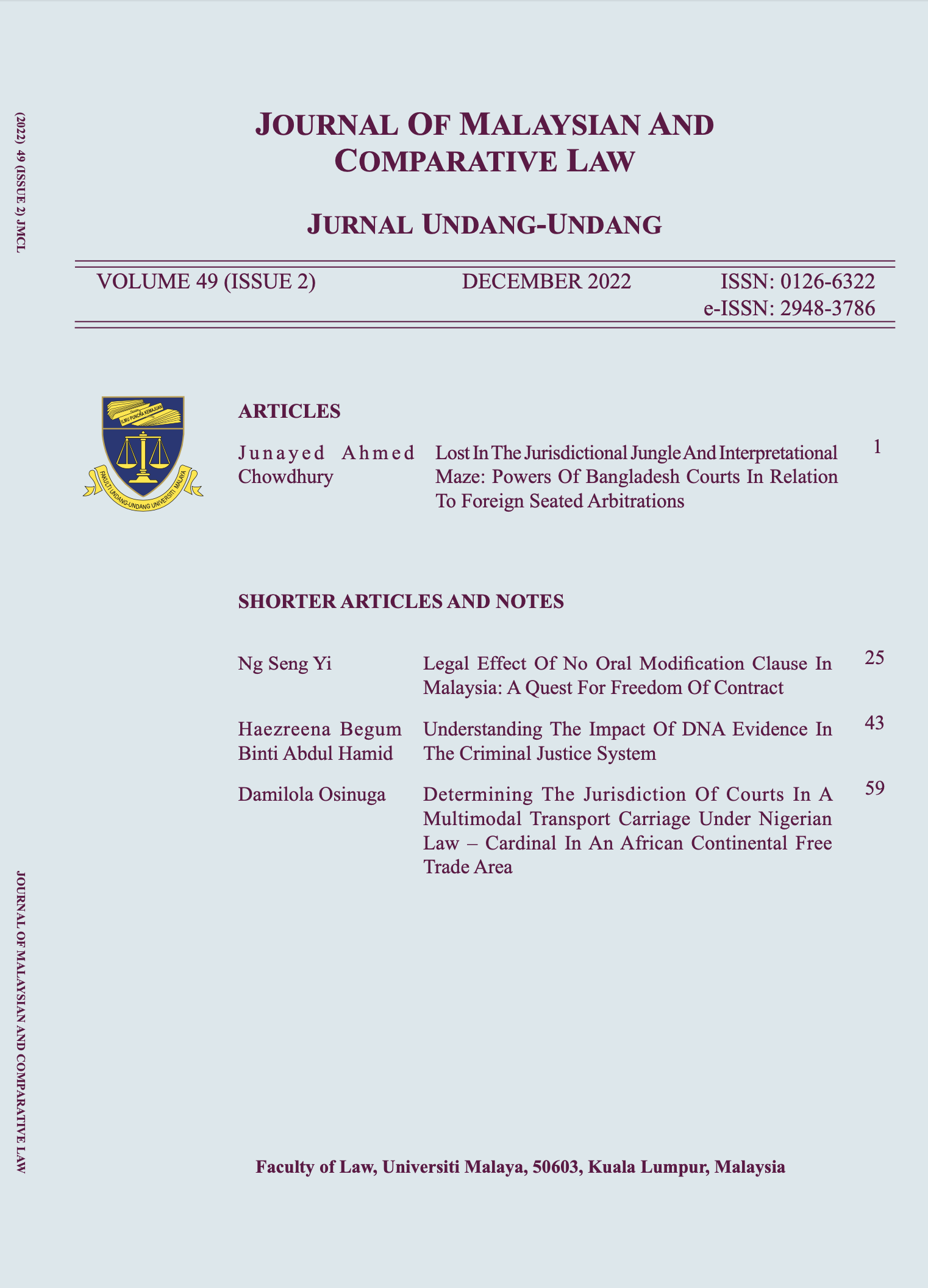LEGAL EFFECT OF NO ORAL MODIFICATION CLAUSE IN MALAYSIA: A QUEST FOR FREEDOM OF CONTRACT
Keywords:
No oral modification, freedom of contract, contract law, MalaysiaAbstract
A ‘No Oral Modification’ clause (‘NOM clause’) essentially prohibits any subsequent variation of the contract unless it is similarly made in writing. Although such clause serves as a boilerplate clause in most circumstances, it has however unexpectedly become the cause of litigation in many instances across Commonwealth jurisdictions, dealing with the predicament of what should happen where the parties have subsequently orally agreed to vary their original agreement despite the existence of a NOM clause. This conundrum depicts that the notion of freedom of contract is itself not entirely straightforward. To this end, three distinct schools of thought in interpreting the same have been recently developed by the apex court of the United Kingdom and Singapore in MWB Business Exchange Centres Ltd v Rock Advertising Ltd and Charles Lim Teng Siang and another v Hong Choon Hau and another respectively. This article seeks to examine the legal approach(es) taken by the Malaysian courts in construing the enforceability of the NOM clause in the light of Malaysian case law and legislative regime, as well as the distinctive positions adopted by its judicial counterparts. It is found that while there appears to be at least two decisions of the Malaysian High Court adopting slightly diverging approaches, the local judicial trend largely suggests that the parties may contract out of section 92 of the Malaysian Evidence Act 1950 (and the exceptions therein) and the legal effect of the NOM clause is to be upheld. It is also submitted that a NOM clause is useful for several sensible commercial reasons.









